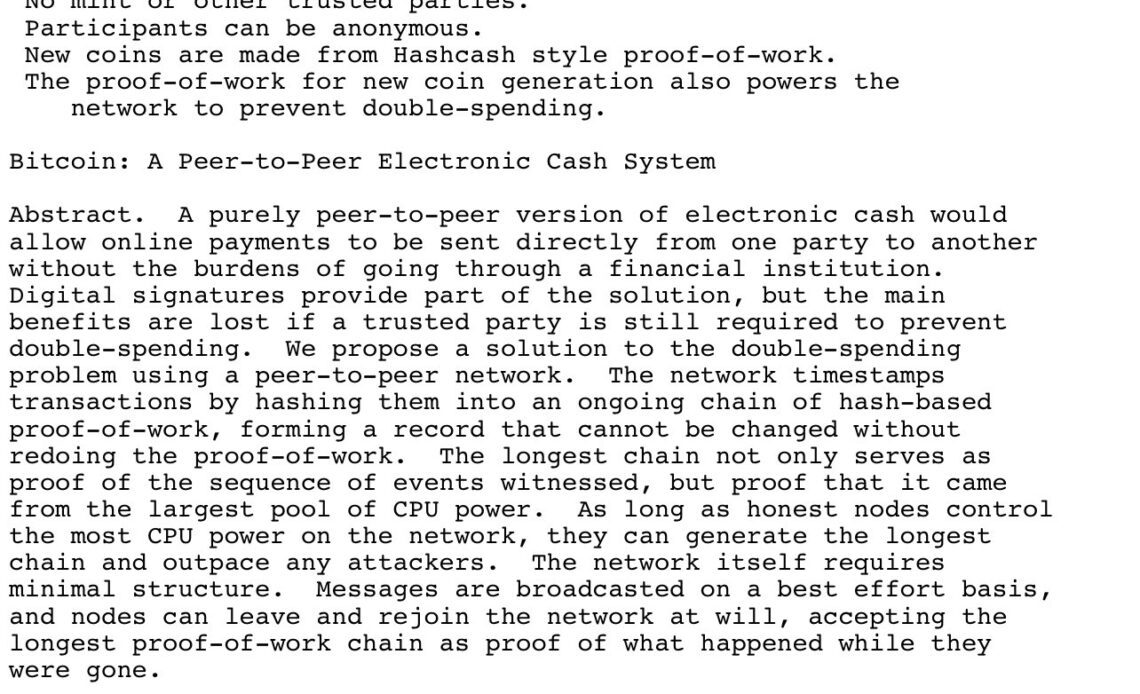Happy white paper day, Bitcoin. It’s been 14 years since Satoshi Nakamoto first sent an email to the Cypherpunk mailing list with the subject line, “Bitcoin P2P e-cash Paper.” The email included a link to the white paper, an outline of what would soon become a one trillion-dollar market.
The first sentence of the email has become iconic among the Bitcoin community:
“I’ve been working on a new electronic cash system that’s fully peer-to-peer, with no trusted third party.”
Over the past 14 years, Bitcoin (BTC) has morphed from a hobbyist pastime into a globally recognized brand. Bitcoin has been adopted as legal tender in regions of the global south such as El Salvador and the Central African Republic. It is used by freedom fighters and campaigners while being a tool for financial emancipation and economic empowerment worldwide.
The speculative fervor that Bitcoin became known for still lingers while Bitcoin’s reputation as being a tool for illicit activities clings on, despite the fact that the United State dollar remains a far more effective tool for hiding financial activity.
In 2022, Bitcoin has evolved into so much more. Cointelegraph spoke to Bitcoin OGs, enthusiasts and newbies during the Plan B Conference in Lugano, Switzerland, to investigate what the white paper means to the world.
Doing its ₿it for good
For world-renowned charities such as Save the Children, the white paper and the subsequent creation of Bitcoin have benefited the organization. Antonia Roupell, Web3 lead at Save the Children, told Cointelegraph that the organization recognizes “Bitcoin’s potential to be a force for good and a force for financial inclusion,” adding:
“On Bitcoin’s 14th anniversary, and at a time of increasingly global financial inequality, the phrase ‘bitcoin is for anyone’ really resonates.”
Roupell explained that Save the Children US was the first iNGO to accept Bitcoin in 2013, stating, “Since then, we’ve raised almost 75 BTC thanks to generous donations to our relief efforts supporting children impacted by conflict in places like Afghanistan and Ukraine as well as families impacted by climate disasters such as Hurricane Ian in Florida.”
Crisis zones have underscored the resiliency and effectiveness of Bitcoin. In the first 48 hours of the Ukraine war, for example, the Ukraine government received $7.5 million in Bitcoin.
Stand with the people of Ukraine
Now accepting cryptocurrency donations. Ethereum. Bitcoin and Tether…
Click Here to Read the Full Original Article at Cointelegraph.com News…
























